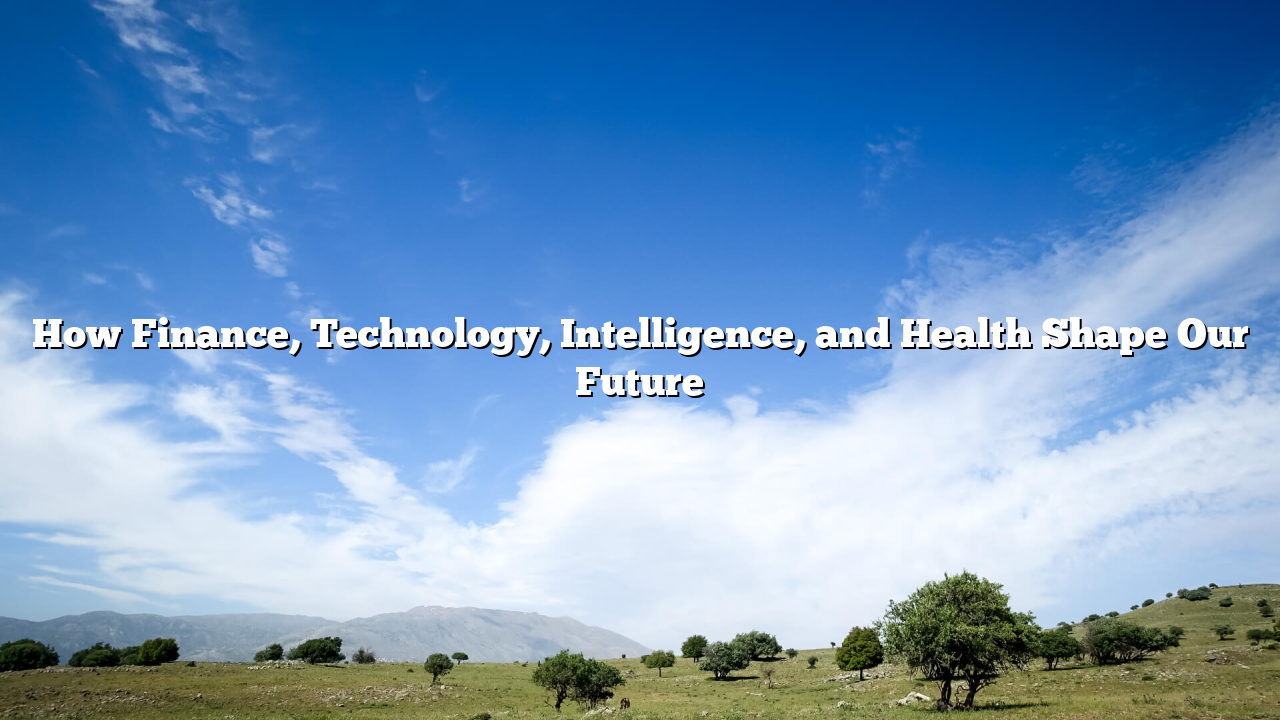—
In the modern world, four key domains play a crucial role in shaping our future: finance, technology, intelligence, and health. These areas are deeply interconnected, influencing and transforming each other. As we move further into the 21st century, their impact on our lives and societies is becoming more profound. This article explores the current trends, challenges, and innovations in these sectors, providing a comprehensive outlook on how they are evolving and intersecting.
Finance: The Changing Landscape of Global Economies
In the past few decades, the world of finance has undergone significant transformations. From the rise of digital currencies to the increasing use of artificial intelligence in financial decision-making, finance is becoming more technology-driven. The development of blockchain technology has paved the way for decentralized finance (DeFi), which challenges traditional banking systems and promises a more inclusive and transparent financial ecosystem.
The fintech boom is redefining personal finance. With the advent of mobile apps, blockchain-based platforms, and AI-driven investment tools, individuals now have greater control over their finances than ever before. Digital banking and micro-investing platforms have made it easier for people to save and invest, often with lower fees and greater convenience.
Technology: The Catalyst for Change
At the heart of the transformation in finance, intelligence, and healthcare lies technology. Innovations such as artificial intelligence, machine learning, and the Internet of Things (IoT) are enhancing productivity, reducing costs, and improving outcomes. AI, for instance, is increasingly used in the financial sector to automate processes and predict market movements. In healthcare, machine learning algorithms are helping doctors diagnose diseases with greater accuracy.
Furthermore, the rapid growth of cloud computing has allowed businesses to store and process vast amounts of data, enabling more sophisticated analysis and decision-making. This trend is evident in industries like finance, where data analytics is increasingly used to predict trends and optimize investment strategies. Similarly, in healthcare, cloud platforms facilitate the sharing of medical records, leading to improved collaboration and better patient care.
Intelligence: The Role of Artificial Intelligence in Shaping the Future
Artificial intelligence (AI) is rapidly changing the landscape of multiple industries, including finance, healthcare, and beyond. In finance, AI is used to optimize investments, identify market patterns, and reduce human error. In healthcare, AI-powered tools are improving diagnostic accuracy and enabling personalized treatments that are tailored to a patient’s unique genetic profile. The integration of AI into these fields is enhancing both efficiency and outcomes.
However, the widespread use of AI raises ethical concerns, particularly regarding privacy, job displacement, and biases in algorithmic decision-making. As Bayar4D Daftar becomes more prevalent, there is a growing need for regulatory frameworks to ensure that these technologies are used responsibly and ethically. It is essential for policymakers to address these challenges while harnessing AI’s potential to drive innovation and improve quality of life.
Health: The Intersection of Technology and Well-being
The fusion of health and technology is ushering in a new era of personalized medicine and wellness. Through advancements in AI, big data, and genetic research, healthcare providers can offer more tailored treatments based on a patient’s specific needs. Wearable health devices like fitness trackers and smartwatches are empowering individuals to take charge of their health, making it easier to monitor key indicators like heart rate, activity levels, and sleep quality.
Moreover, telemedicine has become an essential tool in improving access to healthcare. The rise of virtual consultations, especially during the COVID-19 pandemic, has made healthcare more accessible for individuals in remote areas or those with mobility challenges. Telemedicine platforms allow patients to consult with healthcare providers from the comfort of their homes, reducing travel time and improving efficiency in healthcare delivery.
—
Ultimately, the convergence of finance, technology, intelligence, and health presents exciting possibilities for the future. By embracing innovation in these areas, we can expect a future where access to resources, personalized services, and improved quality of life become a reality for people around the globe.
